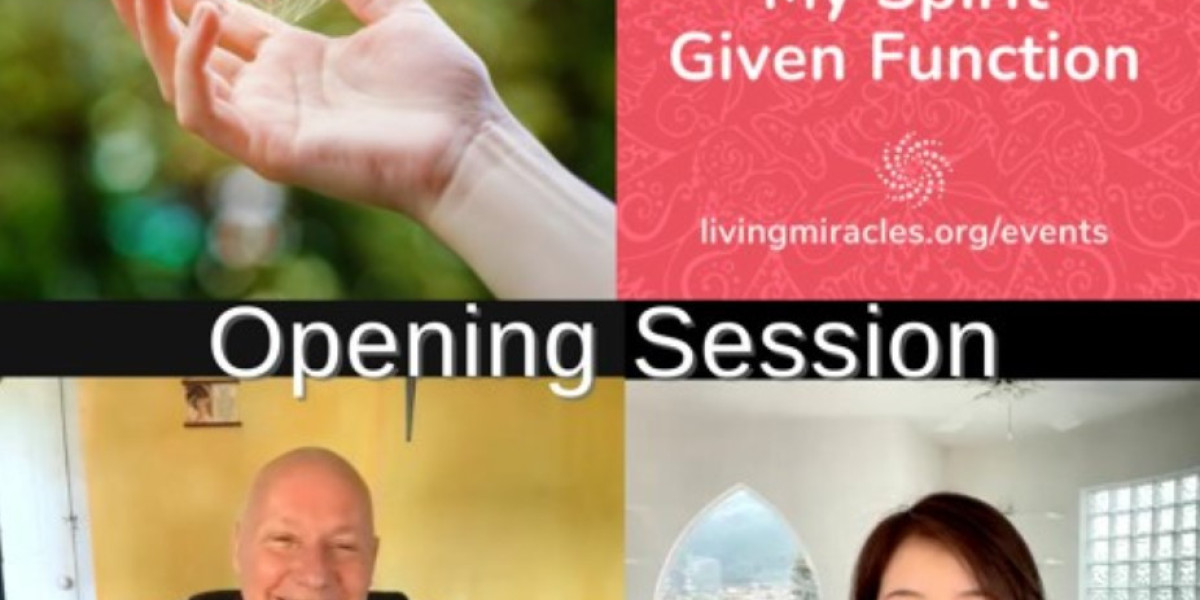Introduction
Forgiveness is one of the most powerful tools for healing, both emotionally and spiritually. In A Course in Miracles (ACIM), forgiveness is not just an act of releasing others for their wrongs but is viewed as a profound shift in perception that has the potential to heal the mind and awaken the spirit. This concept of forgiveness goes beyond traditional views, offering a new way of seeing ourselves and the world around us. Through forgiveness, ACIM teaches, we can transcend the ego's limitations, find peace, and experience true freedom.
What Is Forgiveness According to ACIM?
In traditional terms, forgiveness often involves pardoning someone who has wronged us, allowing us to move past the pain they’ve caused. However, ACIM presents a radically different perspective on forgiveness. The course teaches that the grievances we hold are based on a misunderstanding of reality, rooted in illusions created by the ego.
According to ACIM, true forgiveness means recognizing that the wrongs we perceive are not real—they are projections of our mind’s fears and judgments. Therefore, forgiveness is not about excusing behavior but about seeing the world through a new lens, one that recognizes the inherent innocence and unity of all people.
The Ego’s Role in Holding onto Grievances
The ego, in A Course in Miracles, is the voice of fear, separation, and judgment. It thrives on conflict, resentment, and the belief that we are separate from others and from love. The ego resists forgiveness because, in doing so, it loses its control over our minds. It encourages us to hold onto grievances, to blame others, and to stay stuck in a cycle of pain and guilt.
By identifying with the ego, we perpetuate feelings of victimhood and create walls between ourselves and others. ACIM teaches that forgiveness is the way to dismantle the ego’s influence, allowing us to see beyond the surface and recognize the truth of love and oneness.
The Connection Between Forgiveness and Healing
Forgiveness, as ACIM explains, is the key to emotional, mental, and spiritual healing. When we forgive, we release the heavy burden of grievances and judgments that weigh down our minds. This release opens the door to profound inner peace and healing. By forgiving others, we also forgive ourselves, recognizing that we are all interconnected and that love is our natural state.
Many people have experienced life-changing transformations through the practice of forgiveness. Relationships that seemed irreparable have been healed, and individuals have found peace after years of emotional turmoil. Forgiveness, as taught in ACIM, is a powerful catalyst for healing the mind and spirit.
Forgiveness as a Shift in Perception
ACIM teaches that forgiveness is not about changing the past but about changing the way we see it. Forgiveness is a shift in perception from fear to love, from conflict to peace. When we forgive, we let go of the ego’s need to judge and blame, and we choose instead to see through the eyes of love.
This shift in perception has a transformative effect. It allows us to release the pain of the past and see the present moment with clarity and compassion. In this way, forgiveness becomes a doorway to inner peace, opening us up to a deeper experience of love and unity.
The Practical Steps of Forgiveness in ACIM
Forgiveness, as outlined in ACIM, is a practice that can be integrated into daily life. Here are a few steps to embody forgiveness:
Recognize the Grievance: The first step is to acknowledge the judgment or grievance you are holding onto. Become aware of the thoughts that are keeping you in conflict.
Be Willing to See It Differently: Once you’ve identified the grievance, ask yourself if you are willing to see the situation differently. This willingness opens the door to a shift in perception.
Release the Judgment: ACIM teaches that judgment is based on fear. By letting go of judgment, you create space for love and peace to enter your mind.
See the Innocence in Others: Forgiveness involves recognizing that we are all innocent, regardless of our behavior. By seeing the innocence in others, you free yourself from the pain of holding onto resentment.
Practice Daily: Forgiveness is a practice that requires daily attention. The more you forgive, the easier it becomes to let go of grievances and experience peace.
Healing Yourself through Forgiveness
One of the most important aspects of forgiveness is self-forgiveness. ACIM emphasizes that forgiving yourself is essential for healing. Many of us carry guilt, shame, and self-judgment that prevent us from experiencing peace. By forgiving ourselves, we release these burdens and open the door to greater self-compassion and love.
When we forgive ourselves, we also become more capable of forgiving others. Self-forgiveness allows us to see our own worthiness and to recognize the shared innocence of all people.
The Spiritual Benefits of Forgiveness
Forgiveness is not only a tool for emotional healing but also a path to spiritual awakening. By forgiving, we align ourselves with our true nature, which is love. The more we forgive, the more we experience the joy, peace, and freedom that come from living in harmony with our spiritual truth.
ACIM teaches that forgiveness is the key to enlightenment. It dissolves the illusions of the ego and allows us to experience the world as it truly is—an expression of love. Through forgiveness, we deepen our connection to the divine and to the love that unites all beings.
David Hoffmeister’s Teachings on Forgiveness
David Hoffmeister is one of the leading teachers of ACIM and has spent decades sharing the transformative power of forgiveness. Hoffmeister emphasizes that forgiveness is a practice of letting go, not only of grievances but of the ego’s entire framework of judgment and fear. His teachings simplify the complex concepts of ACIM and offer practical ways to integrate forgiveness into daily life.
Hoffmeister often shares personal stories of transformation and healing through forgiveness, demonstrating the profound impact this practice can have on one’s life.
Conclusion
The healing power of forgiveness, as taught in A Course in Miracles, is profound. It offers a way to release the past, heal emotional wounds, and experience the peace that comes from living in alignment with love. By practicing forgiveness, we free ourselves from the chains of judgment and fear, opening the door to spiritual awakening and lasting inner peace.
As we embrace forgiveness, we discover the truth of our shared innocence and the oneness that connects us all.
FAQs
What makes forgiveness in ACIM different from traditional forgiveness? Forgiveness in ACIM is about recognizing that the grievances we hold are illusions created by the ego. It’s not about excusing behavior but about seeing through the illusion of separation.
How does forgiveness help with emotional healing? Forgiveness releases the heavy burdens of anger, guilt, and resentment, allowing for emotional freedom and peace.
Can forgiving others really lead to inner peace? Yes. ACIM teaches that by letting go of judgments and grievances, we free our minds from the pain of the past, which leads to inner peace.
How do I forgive myself when I’ve made mistakes? Self-forgiveness involves recognizing your inherent worth and understanding that mistakes do not define you. ACIM encourages us to see our innocence and release guilt.


